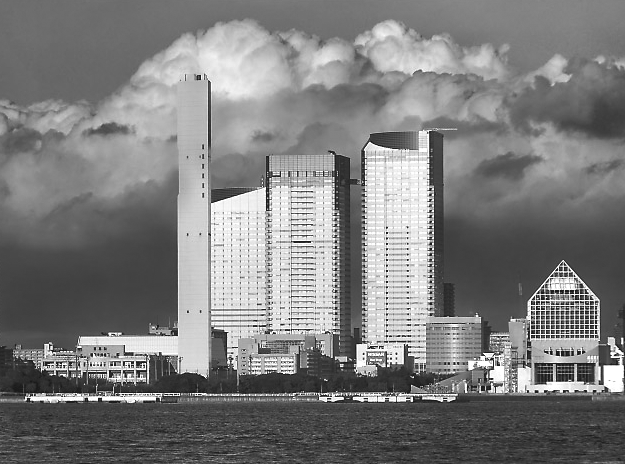Все про видеонаблюдение
Все про умный дом
Все о пожарной безопасности
Сейчас читают
 Как ускорить и смотреть ютуб без тормозов и замедленияЕсли Вы на этой странице, то Вам, скорее всего, […]
Как ускорить и смотреть ютуб без тормозов и замедленияЕсли Вы на этой странице, то Вам, скорее всего, […] 10 лучших прогрессивных языков программирования для разработки мобильных приложенийЗнаете ли вы, что мобильные приложения — это не только […]
10 лучших прогрессивных языков программирования для разработки мобильных приложенийЗнаете ли вы, что мобильные приложения — это не только […] 6 важных особенностей, которые следует учитывать при строительстве нового домаСтроительство нового дома – это уникальная возможность […]
6 важных особенностей, которые следует учитывать при строительстве нового домаСтроительство нового дома – это уникальная возможность […]
Гороскоп на Сегодня

«Intelligent buildings» are the future of construction for Asia.
All new commercial and luxury residential buildings are designed with a common goal — to become intelligent.
However, the definition of an intelligent building has not yet been brought to a common denominator around the world.
In the United States, intelligent buildings are divided into categories, including four criteria: building structure, building systems, building services, and building management.
In Europe, the main focus is on information technology and end-user needs.
In Singapore and China, the term “automation” has historically dominated in tandem with the use of high technology.
In our view, the correct definition of an intelligent building should be based on the needs of consumers, rather than building an image of the building itself with its infrastructure.
Singapore
The Singapore Government’s Department of Works defines an “intelligent building” (IB) as one that must meet three conditions:
1. The building must have a modern control system that regulates the operation of the air conditioning system, temperature, lighting, security, fire protection, etc., providing residents with comfortable conditions.
2. The building must have a good network infrastructure that allows for the exchange of information.
3. The building must have modern telecommunications solutions.
China
In China, the definition of IZ emphasizes building management systems and communications using high technology.
In Shanghai, IZ developers imply that such a building should perform three main functions: communication function, office automation, and building management automation.
Some experts separate the fire and security system from the general automation of the building, since it is equipped with independent automation, while other engineering systems of the building use complex technical solutions to integrate with each other.
Japan
In Japan, the definition of an intelligent building mainly focuses on the needs of people in the building, and includes four main aspects:
1. Acting as a platform for information exchange and supporting management efficiency.
2. Ensuring that the needs of people in the building are met and creating a comfortable environment.
3. Manage the building rationally and provide higher quality service while reducing its operating costs.
4. Quickly adapt to changes, including economic and social ones, be linked to office work processes and business strategies.
In accordance with the cultural characteristics of Japan, intelligent buildings should support an effective working environment, operate autonomously, and adapt to possible changes.
Requirements for this type of building:
— precise operation of the air conditioning system, providing different microclimate parameters for groups of users in the building;
— lighting system;
— recreation areas;
— atrium;
— digital exchange of electronic information;
— fiber-optic local computer networks;
— central monitoring system;
— access control system;
— automatic energy metering system;
— high-capacity cable system, and the use of other technologies.
The definition of IZ in Japan is different from other countries, especially from Western countries, due to its more attentive attitude to the building occupants and their needs.
However, we feel that the Japanese definition of IZ is more suitable than others to create a universal concept of this term in Asia.
Hence, a two-level strategy is proposed for defining IZ.
The first level will include 9 modules of environmental quality.
1. Environmental protection — energy conservation.
2. Flexibility of space use.
3. Comfort for residents.
4. Efficiency in work.
5. Culture.
6. Presence of high technologies.
7. Safety measures.
8. Construction process.
9. Payback during the life cycle of the building.
The second level evaluates a set of key elements: functional requirements, functional spaces, technologies.
Each of the 9 modules selects a number of key elements, in order of priority.
With two levels, we can formulate a new definition of an «intelligent building»:
An intelligent building should be designed and constructed based on a selection of environmental quality modules that meet the requirements of the end user and are linked to the relevant building elements to enhance its value throughout its life cycle.
This definition for IZ includes two additions.
1. Requirements of designers, building owners and occupants.
2. Intelligent technologies — systems and services.
The integration of these additions forms measurable parameters for the building. (System performance, market value, energy savings, etc.).
Using this approach, it is possible to identify the same set of criteria for evaluation for any building.
With the help of such criteria, it will be possible to evaluate whether the building has the functions inherent in an intelligent building.






Добавить комментарий